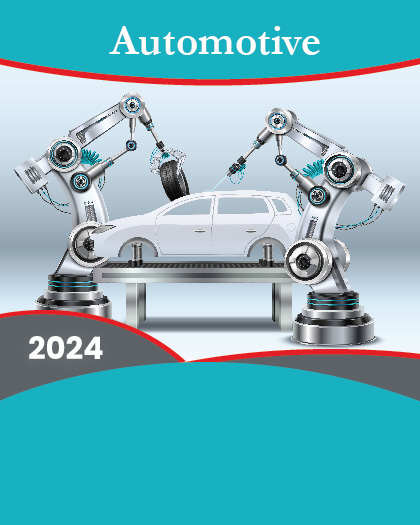
The global automotive chip market is expected to witness remarkable growth in the coming years. The factors that influence the demand for automotive chip are automotive-semiconductor sales growth, a booming automotive industry coupled with the increasing registration of new cars, and stringent government regulations regarding automotive safety and emission.For the study, the global automotive chip market has been segmented based on product, application, vehicle type, propulsion, and region. The global automotive chip market by product is segmented into- analog ICs, microcontrollers & microprocessors, logic ICs and others. On the basis of application, the global automotive chip market is segmented into- body electronics, telematics & infotainment, powertrain, safety system and chassis. Based on vehicle type, the global automotive chip market is segmented into- passenger car and commercial vehicle. On the basis of propulsion, the global automotive chip market has been segmented into- internal combustion engine (ICE) vehicle, battery electric vehicle (BEV), and hybrid electric vehicle (HEV).
Key Players
The key players of in the global automotive chip market are NXP Semiconductors (Netherlands), Infineon Technologies AG (Germany), Renesas Electronics Corporation (Japan), STMicroelectronics (Switzerland), Texas Instruments Incorporated (US), Robert Bosch GmbH (Germany), ON Semiconductor (US), Denso Corporation (Japan), Toshiba Corporation (Japan), and ROHM Semiconductor (Japan).
> > To provide a detailed analysis of the market structure along with a forecast for the next five years of various segments and sub-segments of the global automotive chip market
> To analyze the global automotive chip market based on various tools such as Supply Chain Analysis and Porter's Five Forces Analysis
> To provide historical and forecast revenue of the market segments and sub-segments with respect to regions and their respective key countries
> To provide country-level analysis of the market with respect to the current market size and future prospects
> To provide country-level analysis of the market for segments by product, application, vehicle type, propulsion, and region
> To provide strategic profiling of key players in the market, comprehensively analyzing their core competencies, and drawing a competitive landscape for the market
> To track and analyze competitive developments such as joint ventures, strategic alliances, mergers and acquisitions, new product developments, and research and development in the global automotive chip market
Asia-Pacific accounted for the largest market in the global automotive chip market, owing to the presence of China, Japan, and India, where the automobile sector is the major contributor to the GDP. The growing demand for automotive semiconductor devices, especially for luxury and premium cars is expected to increase the need for automotive chip during the forecast period. Moreover, the established players in the region are investing more to develop innovative products and enhance existing products, which opens new opportunities for global automotive manufacturers. In Europe, the increasing demand for system-on-chip (SoC) systems in vehicles is expected to drive the automotive chip market. Automotive manufacturers are heavily investing in next-generation vehicles. All significant OEMs and tier one automotive manufacturers have started cooperating with integrated circuit (IC) manufacturers to meet the demand for advanced hardware systems.Moreover, North America is expected to witness a significant growth during the forecast peiod. The growth can be attributed to the increasing investments by the domestic players in the research and development of automotive chip to improve vehicle efficiency by developing innovative products and technologies.
























